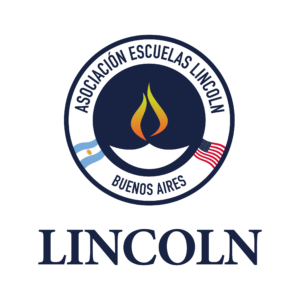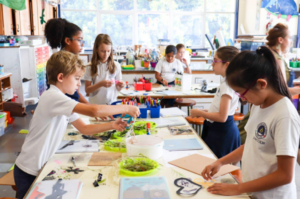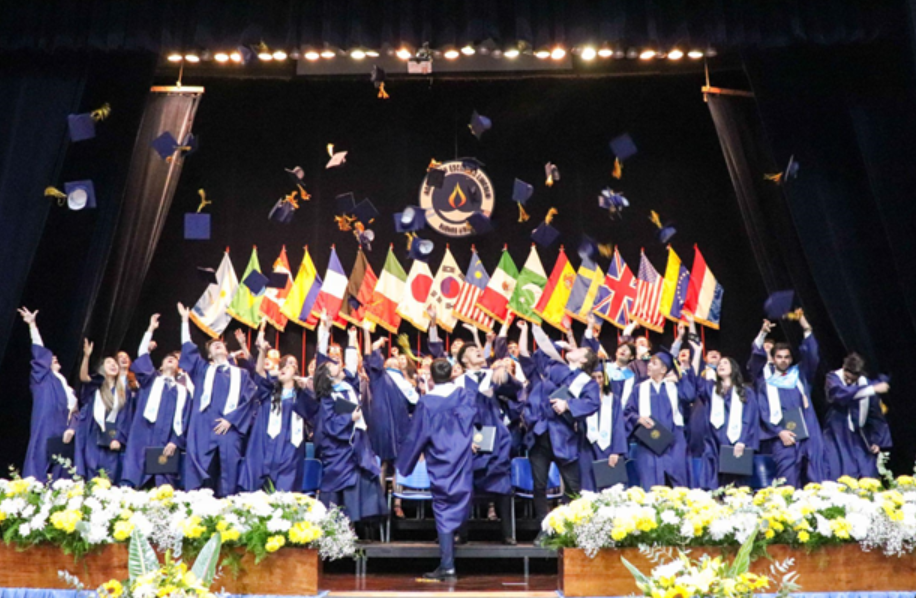 Asociación Escuelas Lincoln’s Mission is to inspire and challenge all of our learners to be kind and ethical members of a global community. We empower them to develop into self-aware, confident, innovative, and collaborative change agents committed to honoring diversity and enhancing their world. We have a student population of 582 with 53 nationalities represented. Through our Student Support Services Department, the Language and Learning teaching staff offer targeted services and support to ensure that our English language learners can access the learning environment and participate in the community. Our curriculum aligns with international standards and Argentine National educational standards offering wide exposure to the Spanish language and society and culture.
Asociación Escuelas Lincoln’s Mission is to inspire and challenge all of our learners to be kind and ethical members of a global community. We empower them to develop into self-aware, confident, innovative, and collaborative change agents committed to honoring diversity and enhancing their world. We have a student population of 582 with 53 nationalities represented. Through our Student Support Services Department, the Language and Learning teaching staff offer targeted services and support to ensure that our English language learners can access the learning environment and participate in the community. Our curriculum aligns with international standards and Argentine National educational standards offering wide exposure to the Spanish language and society and culture.
Our faculty represents almost 30 countries, and more than 20 languages are spoken around campus. English is the main language of instruction, as well as Spanish. Our strategic plan has a focus towards Diversity, Equity, Justice and Inclusion advocating to ensure that our practices and beliefs enable an inclusive environment for all students and staff regardless of ability, language and ethnic diversity. Due to this belief, every teacher at Lincoln is a language teacher and advocate for inclusion.

We are a community with a unique population of staff and families from all over the world, with a transient population of students transferring in and out of different systems, school calendars and different pedagogies. English may only be their academic language for the short time they are here. We are Innovative in our co-teaching models, focus on writing skills and align our progress to our ALLs. For teaching and learning our staff provide students with robust feedback loops between teachers and students, and among students with multiple opportunities to revise and edit before submitting their final projects or essays. Creating tools for independence such as word banks, vocabulary lists, and sentence frames to provide students with explicit choice and structure in communicating their learning. We believe that innovation translates to giving students multiple opportunities to demonstrate their ability to meet standards. For those students whose language level is below the intermediate range, we offer language pathways for individualized programming and adjustments are made to schedules to better meet these students’ needs.

Eight years ago our school was searching for a more robust way to evaluate academic language abilities and to incorporate purposeful lesson plans for building academic vocabulary when we discovered that WIDA had become available for international schools. At first we were drawn more towards the “Can Do” philosophy and focused on the measurement of academic language capabilities. As we joined what was then the WIDA consortium for international schools, we were drawn into the robust research based strategies, and “essentials” for building in more purposeful development of academic language for our students. Since then, our school has utilized the WIDA assessments and guiding documents to inform our Admissions decisions and guide our intervention planning, progress reporting and support for our multilingual learners. Joining the MLRC Network offers us the opportunity to gain access to current research, innovative methodologies and program refinement ideas in addition to collaboration with other educators.
We hope to explore and learn more about:
- Refining our program design standards and practices
- Learning more about current intervention strategies for English Language Learners
- Exploring how to support language development for multilingual students with disabilities
- Discovering more about the common challenges we may encounter in schools with similar demographics to ours.
- We hope to continue to hone our skills and refine our practice in the development of academic writing and oral discourse in our students.

